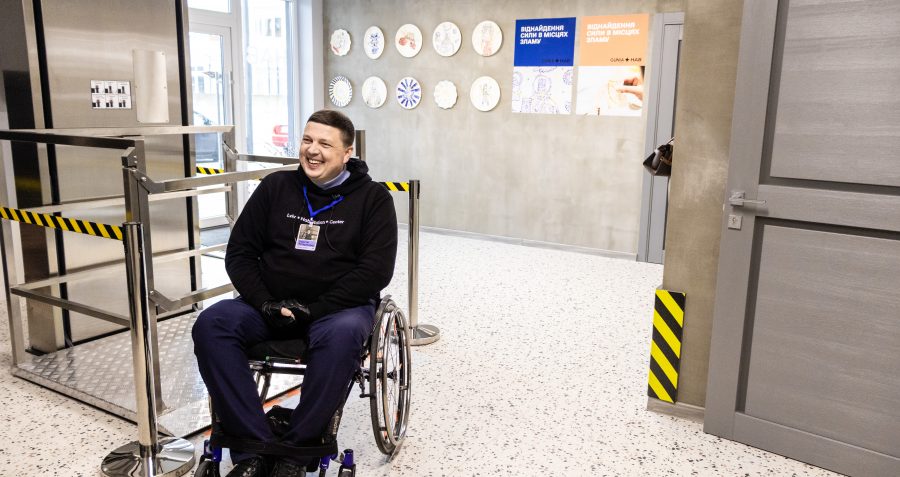Habilitation Center

Key information
- Organisation: Alliance for Public Health
- Country: Ukraine
- Region: Eastern Europe and Central Asia
- Stage of innovation: Stage 3: Pilot
- Start date: 01/06/2023
- End date: 31/12/2024
- Type of innovation: Conceptual innovation: new ways of looking at problems, challenging assumptions, or both
- Budget: $340,918.00
- Funder: Gilead
Summary of intervention
As Ukraine enters yet another year of conflict, there are large numbers of now demobilised military personnel who are struggling to re-adapt to civilian life. These challenges can create risks to individual and public health such as alcohol or substance abuse, social and economic isolation and increased risk of violence. Each of these factors then increases risk around HIV and other diseases.
Alliance for Public Health established the Lviv Habilitation Center, a unique living centre, to provide a therapeutic community where veterans can safely navigate this transition. This innovation goes beyond traditional rehabilitation, embracing the concept of ‘habilitation’ — a comprehensive programme of ‘social learning’ that provides knowledge, skills and support for veterans to become self-reliant and manage their own well-being. Through the integration of international psychological rehabilitation expertise, social learning and community reintegration skills, veterans learn to understand and integrate their new identities with their military experiences, fostering a cohesive self-concept and a sense of empowerment and autonomy.
The habilitation approach offers a continuum of care that extends beyond immediate medical recovery to address long-term social reintegration and mental health. This therapeutic community model emphasises community support and personalised care, fostering a more holistic recovery and reintegration process for veterans.
Results show improved psychological well-being and social reintegration, development of personal autonomy, and enhanced community support networks. The project’s innovative approach has contributed to a deeper understanding of veterans’ needs, which aids in the design of more effective long-term care strategies for this population.
learnings
The project encountered negative societal biases and stereotypes about veterans — as emotional, inflexible and associated with alcohol and drug addiction. However, APH is changing attitudes — holding events for civilians on communicating with veterans and how to help people with disabilities, in response to requests from community organisations, government agencies, and university students.
Adapting international rehabilitation methods to the Ukrainian context was a complex process. Existing international approaches did not address the issues in Ukraine. APH tested new approaches and methods, and is continuously improving them.
Since the project began, legislation around veterans has changed twice, greatly affecting the processes of working with rehabilitation centres and veterans. The process of demobilisation, which lasts 1-3 months and during which veterans must remain in their military unit, often needs to be restarted due to loss of documents. APH has had to be flexible, constantly communicating with the military administration. A lawyer has now been hired who specialises in veterans’ law and can provide comprehensive advice to residents.
next steps
Alliance for Public Health intends to extend the programme’s reach to more veterans and integrate additional therapeutic methods and activities. There are also plans to develop and enhance online platforms for remote support and community building.
sustainability
Sustainability for this project will involve creating a self-sufficient and replicable model of veteran rehabilitation, including establishing a steady funding stream, perhaps through government or private sector partnerships. It will also require a training programme for staff and volunteers to ensure quality and continuity of care, as well as developing a scalable online platform that can reach a broader audience while reducing long-term costs.
Documenting and sharing the project’s methods and outcomes will also support sustainability, allowing for replication in other contexts and regions, thus broadening the impact on veteran care globally.

